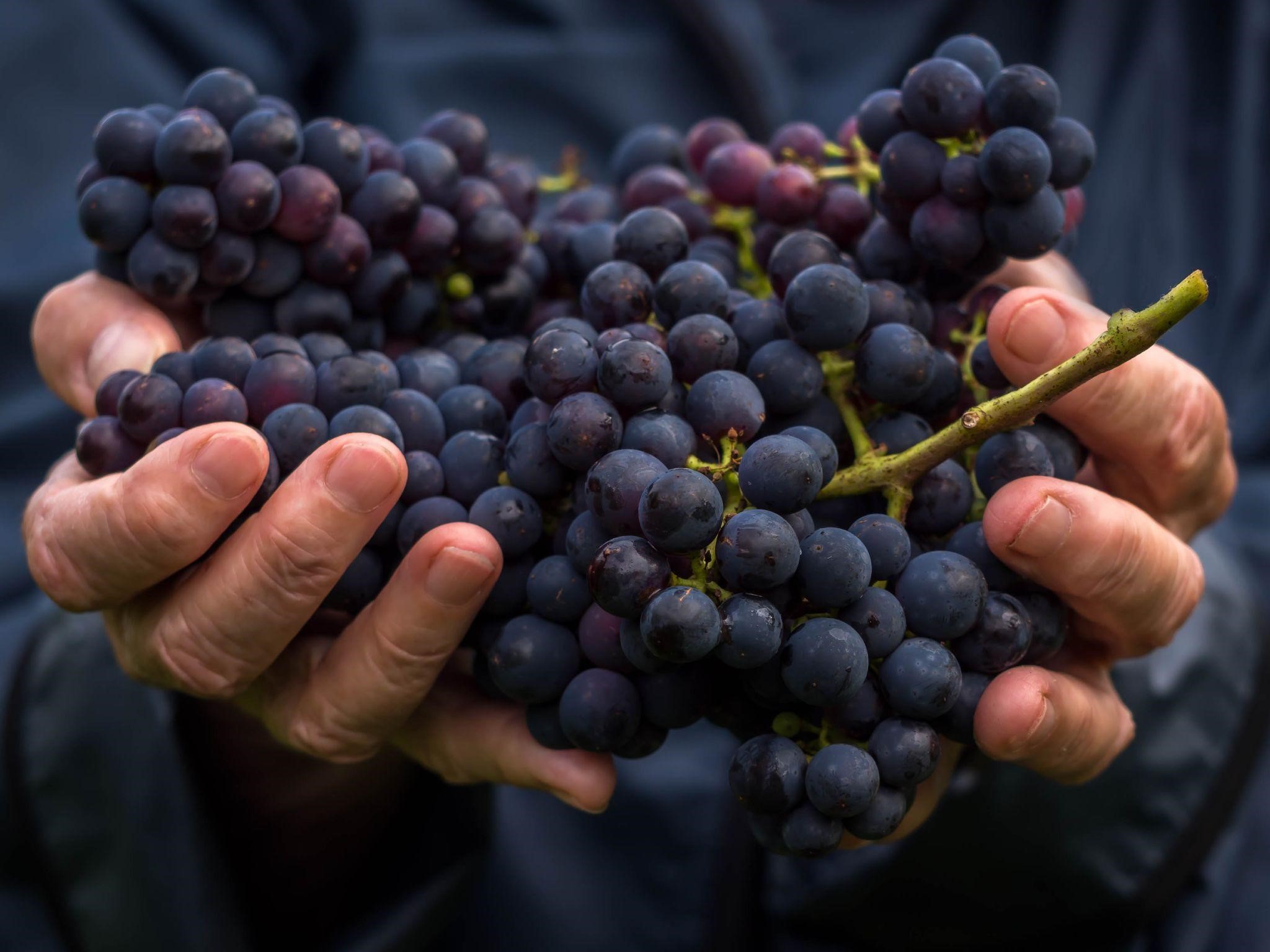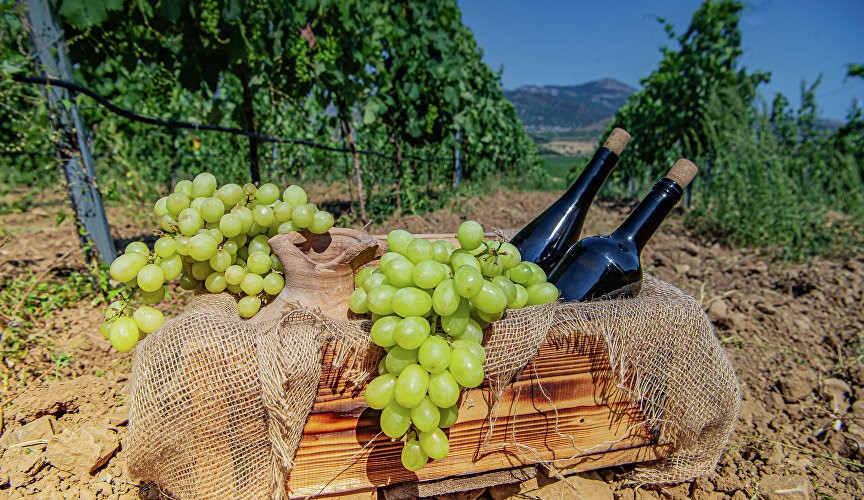3 types of naturalness: organic, biodynamic and natural wine

Modern trends lead us along the natural path and aim at the further organic development of mankind. Undoubtedly, the field of winemaking is not left aside, but rather acts as a leading player. Traditional methods of winemaking are back on trend. What is it like – ecological natural wine? What is the “salt” of biodynamic wine? And how is the idea of ecological consciousness embodied in organic wine? The popular slogans “Back to the nature” and a return to natural origins in our bio-wine review.
What makes organic wine different from other wines?
First and foremost, the organic principles of grape growing: a natural approach to ripening cycles, bio-pure soil without the use of harmful chemicals. Furthermore the grapes are gathered by hand, the vinification is done categorically without synthetic preservatives and additives, the equipment for aging the wine is exclusively ecological – without chemical treatments. In general, the production of organic wine is a responsible and time-consuming process, and the label with the appropriate certificate and confirmation from the relevant regulatory agencies about the 100% naturalness is not an invention of marketers.
Of the organic wines presented in our stores, you can see, for example, the Spanish wine Todo Sobre Mi, which means “Everything about me. This white, dry wine was created at Vina Cerron Vineyards using organic winemaking methods. “Todo Sobre Mi” is a wine that awakens the senses, leaving a crisp freshness of meltwater in the aftertaste.
If your soul needs a red, check out Francois Labet Ile De Beaute Pinot Noir. One of the first companies in France to switch to organic viticulture, Francois Labet cultivates vineyards that are located in Corsica and Burgundy. Organic wines with a unique terroir, from grapes of optimum maturity Pinot Noir allowed to get a decent dry wine with a balanced taste and complex aroma with notes of black berries and spices, minerals and herbs.
What are the basic principles of biodynamic wine making?
Rudolf Steiner, the founder of the theory of biodynamics on the harmonious structure of the universe, paying attention to agriculture and winemaking in particular, derived several precepts on the proper interaction with the cosmos. Fans of creating biodynamic wine are apologists for the influence of the elements on key life processes. For example, grapes cannot be pruned at the full moon because of the active movement of sap in the vine – such dependence is synchronous to the phenomena of the tide. There is an opinion that the best wines of the world are biodynamic. Whether it is really the forces of nature and cosmos working this way or the reason is in very careful attitude to vineyards is an open question at the moment. But to taste such wine and make your own conclusions we consider it a must.
For example, the biodynamic Pingus Psi wine from renowned revolutionary oenologist Peter Cissek of the Ribera del Duero wine region. “Psi” is the 23rd letter of the Greek alphabet (Ψ), embodying a utopian idea. For the complex-tasting “Psi” wine, Tinto Fino berries are harvested and cultivated entirely according to biodynamic principles.

What are the peculiarities in natural wine production?
A wine that pushes the boundaries of perception, which, unlike the first two types, has no strict rules of creation. The motto of proponents of natural wine is: “Harvest the grapes and ferment!” The main feature of natural wines is a strange and incomprehensible taste, more reminiscent of apple cider, which is the result of uncontrolled fermentation. Hence the trendy category of sparkling wines, petnat, also called “rustic champagne.” It is a cloudy, bubbly wine that is not aged on the lees. It has a volatile acidity, particularly tannic in the case of white wines, and low alcohol content in the case of red wines. In order to make a personal opinion of the natural wine we recommend to try the sparkling Chateau Pinot Petnat Riesling. A natural wine from the Chateau Pinot producer will delight you with a unique taste experience.
How are the grapes grown for organic wine?
A complete rejection of synthetics is claimed – fertilizers are used exclusively biodegradable, such as ash, mowed weeds, etc. For a vineyard to get the coveted “BIO” status, it needs several years to cleanse it of inorganics: herbicides and pesticides that were previously used on local soils. Land remediation can be a fairly long-term step and can take up to 5 years. The harvesting of ecologically clean crops also uses a minimum of machinery and preference is given to manual labor. Such “grandfatherly” methods of harmonious interaction with nature increase the fertility of the soil, make it possible to extract the authentic taste from the grapevine and give maximum benefit to the natural wine drink.
Natural Bio Wine Production
The natural wood barrels that are used to age organic wine must also be eco-friendly. For example, the oak from which they are made must grow in an eco-region without any treatment with chemicals. Also, stainless steel tanks are used for storing grape raw materials. This is done to minimize extraneous effects on the natural taste of the grapes. Special natural yeasts are used in the vinification process and bottling takes place in a nitrogen environment that excludes interaction with oxygen. Organic wine, produced from ecologically pure natural raw materials, carries a concentration of natural flavors and a rich bouquet.
The production of natural organic wine can depend on many factors, but some of the main factors include:
- Selection of grape varieties: In order to produce quality wine, the right grape varieties must be chosen. These varieties must be suitable for the climatic conditions in which they will be grown and must provide high quality juice.
- Organic or biodynamic growing methods: In the production of natural wine, organic or biodynamic growing methods are used. This means that only natural methods of pest and weed control are used, and sustainable farming principles are followed.
- Grape harvesting: the grapes must be harvested by hand. This allows only ripe and healthy bunches to be picked, ensuring high quality juice.
- Fermentation: fermentation should proceed naturally, without the addition of artificial yeasts or other additives. This preserves the unique flavour and aroma of each grape variety.
- Storage: after fermentation the wine should be stored in oak or non-oak barrels. This allows the wine to develop its full flavor.
- No added sulfites: no sulfites should be used in the production of natural wine. Sulfites can be used as preservatives, but they can also affect the flavor and aroma of the wine.
- Bottling: Bottling should be done without the use of filtration and clarification. This preserves the natural properties of the wine and prevents loss of flavor and aroma.
In general, the production of natural organic wine requires the use of natural methods of cultivation, fermentation and storage, as well as minimizing the use of additives and artificial substances.
Taste and aroma of natural wine
Producers who adhere to the principles of natural winemaking believe that this approach allows for the most complete disclosure of the true flavor and aroma of grapes. And although proponents of organics, biodynamics and natural wines are often too radical in their views, a wine made according to the principles of organics, naturalness and biology has the most amazing bouquet. There is an opinion that the wine sweetness and moderate acidity of natural wine gives the body vitality. It is possible to be carried away by fashionable trends of ecological life, it is possible to believe only in technical progress, but the fact remains: it is scientifically proved that in bio wine, compared to conventional wine, the content of preserved minerals, antioxidants and vitamins is high, so it is simply useful to drink such wine!